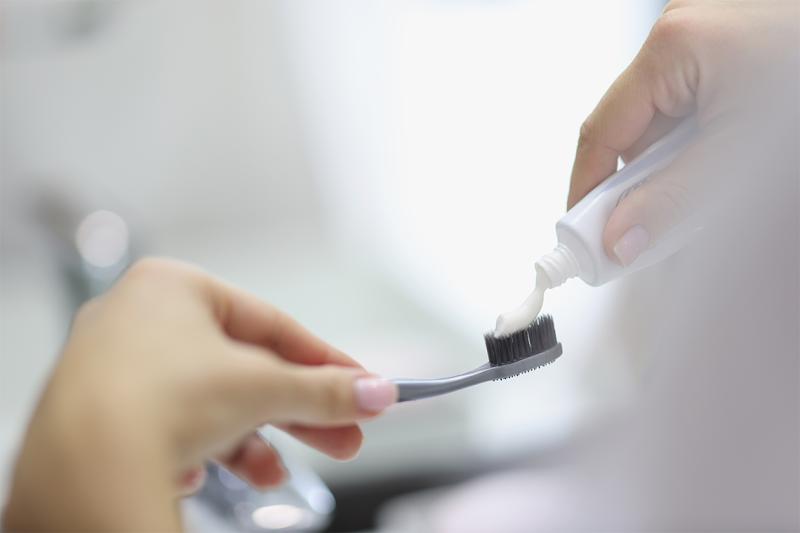December 3, 2021 | Alumni
U of T Dentistry alumna shows effectiveness of flouride-free toothpaste for young children
By Rachel Boutet

A study by researchers at U of T and in Germany found that toothpastes containing hydroxyapatite appear to demonstrate either superiority or equivalency to fluoride toothpastes in fighting tooth decay (Photo by Ivan-balvan/iStock via Getty Images)
Researchers at the University of Toronto’s Faculty of Dentistry have shown that new fluoride-free toothpastes with hydroxyapatite can provide equivalent protection to those containing fluoride.
Kelsey O’Hagan-Wong (DDS 2018), a U of T alum and a second-year pediatric dentistry resident, was the first author of a review paper that investigated the efficacy of fluoride-free hydroxyapatite toothpastes on re-mineralizing and therefore repairing teeth. Through her research, she found that hydroxyapatite toothpastes appear to demonstrate either its superiority or equivalency to fluoride toothpaste as anti-caries agents.
Typically, fluoride is used in the prevention of dental caries, but due to the decreased acceptance among the public and the risk of fluorosis in children, there is the need for effective alternatives. Hydroxyapatite is the main mineral of human tooth enamel and can be used in toothpastes as a biomimetic active ingredient.
The paper was recently published in the journal Odontology.
Although this toothpaste has been on the market for a while, most people are unaware of it
“Fluoridated toothpaste is often a concern for very young kids who are more likely to swallow it,” says O’Hagan-Wong, who worked closely with Professor Bernhard Ganss, vice-dean research at the Faculty of Dentistry, and scientists Joachim Enax and Frederic Meyer – both based in Germany.
“The problem is kids are getting cavities, so there needs to be an alternate solution.”
Hydroxyapatite products can be considered as an alternative in young children where fluorosis is a concern. The challenge, says O’Hagan-Wong, is the toothpastes are often expensive, difficult to obtain and not well-known.
“Although this toothpaste has been on the market for a while, most people are unaware of it,” she says. “Hopefully with more knowledge, it can be used to prevent cavities.”
O’Hagan-Wong believes more can be added to fluoride-free toothpastes to further improve and protect teeth. Her master’s research involves looking at adding a special protein to hydroxyapatite toothpaste that can help rebuild the tooth and prevent further decay.
Her research has already received an Ontario Society of Preventive Dentistry-Public Health Research Fellowship, an award given out by the Faculty of Dentistry that supports graduate students further research in the areas of preventive dentistry and public health.

